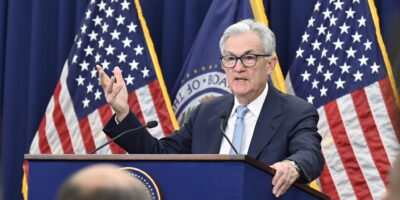Central Bank Independence and a Trumped Up Fed
Last week, President Trump appointed Jerome Powell to head the Federal Reserve. Much could be (and has been) said about the decision. Stephen Williamson maintains that, “[i]f Powell had not been appointed to the Board in 2011, nobody would be thinking of him as a candidate for the Chair’s job now.” Peter Conti-Brown suggests the decision erodes the political norm of Republican presidents reappointing Democrat appointees and Democrat presidents reappointing Republican appointees. Indeed, the decision seems to have revived fears that Trump will end the era of central bank independence. As Eswar Prassad remarked in the run up to the decision, “The Fed’s independence […] is crucial for sustaining investors’ confidence in the dollar. […] any act that undermines the Fed’s independence could seriously damage the institutional framework upon which U.S. economic strength rests.”
There is certainly much scope for Trump to change the political leanings of the Fed. He is set to make no fewer than four appointments to its seven-member Board. And, if Yellen resigns (as Chairs failing to gain reappointment have done in the past), he will have selected all but two members–one of whom (pending confirmation in the Senate) he has raised to Chair. It is hard to predict whether Trump will make the most of these appointments. His first Board appointment, Randy Quarles, was an establishment pick who held financial policy positions under both Bush administrations. But, even if he does radically reshape the Fed, the effect on the institution’s independence is unclear.
It cannot be true that “[t]he Fed has international credibility precisely because it is independent from any political master,” as Prassad claims. It cannot be true because the Fed is not independent from any political master. The Fed is nominally independent, to be sure. It is not an agency of the federal executive departments nor the Executive Office of the President. But it is not independent from political influence. Indeed, it is not even independent relative to other central banks around the world.
Don’t take my word for it. Look at the data. In a recent study, Ana Carolina Garriga offers two measures of central bank independence. Out of 179 countries, the US ranked 138 and 156 in 2012. Her results are in line with earlier rankings, which put the US at 82, 83, 84, and 87 out of 89 countries in 2010.
We can debate whether Trump undermines the Fed’s independence. But we should first acknowledge that we are starting from a low base. As much as economists might want it to be otherwise, the Fed is not independent. It is subject to political pressure like other agencies.









